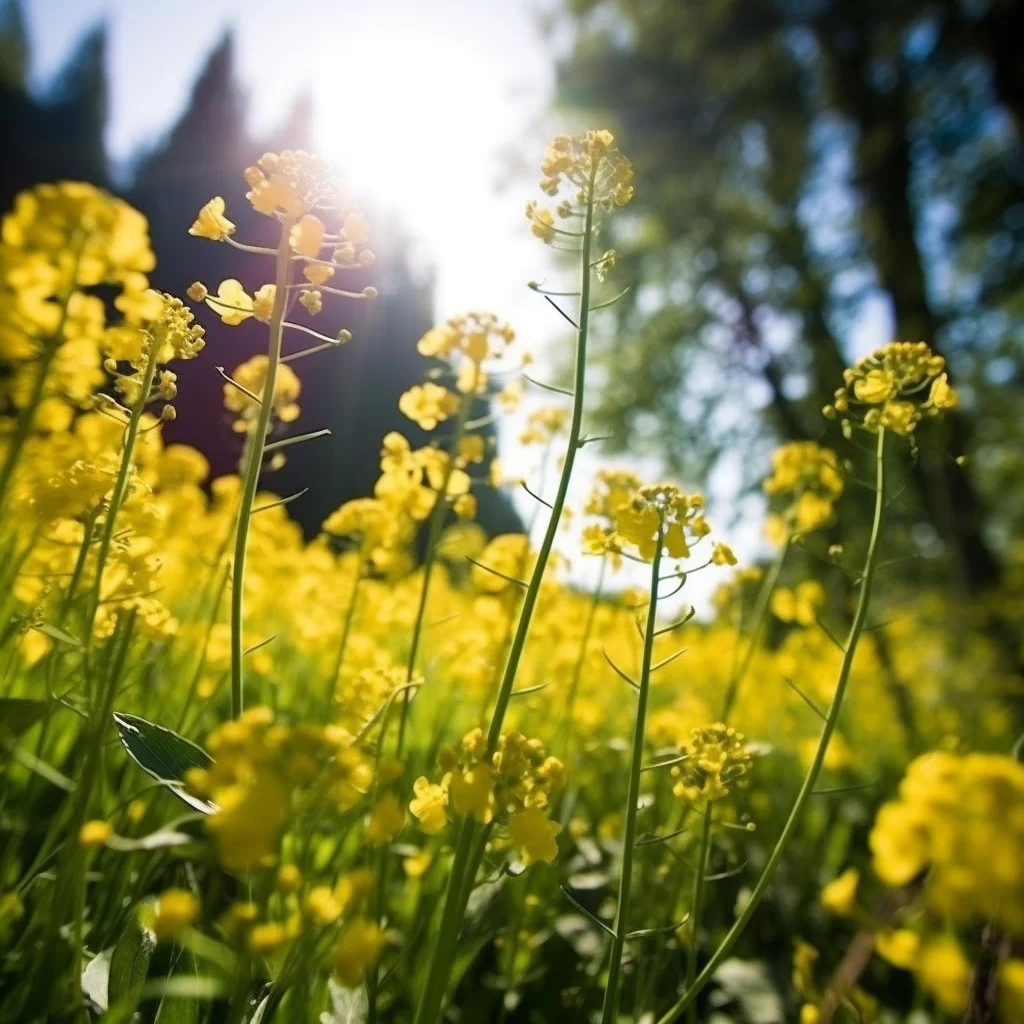Story of Day :
Contents
The Rapeseed Plant: A Complete Guide and Care Tips
When you hear the word “rapeseed,” you might not immediately think of a beautiful garden plant.
But, this hardy and versatile plant can be a great addition to any backyard if cared for correctly.
What is Rapeseed?
Rapeseed (Brassica napus), also known as oilseed rape or canola, is a member of the Brassicaceae family.
It originated in the Mediterranean region but has now spread to many parts of the world, including North America and Europe.
The rapeseed plant is grown mainly for its oil-rich seeds, which are used in cooking, animal feed, and biodiesel production.
However, it’s also valued as an ornamental plant due to its bright yellow flowers.

Growing Conditions
Rapeseed plants are adaptable to different growing conditions but prefer full sun exposure and well-drained soil with a pH range between 6.0-7.5.
They can tolerate some drought but will not grow well in waterlogged soil or heavy clay soils.
- Sowing: Sow rapeseeds outdoors from late summer through early fall before it gets too cold so that they have enough time to establish themselves before winter sets in.
- Spacing: Space plants around 12 inches apart with rows spaced around two feet apart
- Fertilization: Fertilize with nitrogen-rich fertilizer during planting time and again when they begin flowering stage
- Pests:Aphids may attack your rapeseeds; however, spraying neem oil on them should do away with them.
- Harvesting: The rapeseed plant blooms in early spring and can be harvested for its seeds about 3-4 months after planting.
Care Tips

Rapeseed plants are relatively low-maintenance, but there are a few things you should keep in mind when caring for them:
- Irrigation: Rapeseeds need regular watering during their growth season to ensure healthy root development and optimal yield.
- Weeding: Keep the surrounding area free of weeds that may compete with your rapeseeds for nutrients and water.
- Pests control: Check regularly for pests such as aphids, cabbage loopers, or diamondback moths which might attack your rapeseed plants.
Use an insecticidal soap spray to get rid of them.
The Benefits of Growing Rapeseed Plants
Growing rapeseed plants has numerous benefits beyond just their ornamental value.
Here are some reasons why you might want to add these hardy plants to your garden:

-
Biodiversity: Rapeseeds attract pollinators such as bees and butterflies into your backyard garden which helps in maintaining the ecosystem balance.
- Nutrient-rich soil: Rapseed is a member of Brassica family; thus it makes sense that they help enrich garden soil by scavenging micronutrients from deep down the ground.
- Cooking oil: The seeds from Rapseed produces high-quality oil suitable for cooking; hence growing some means you could have an almost limitless source of cooking oil right in your backyard.
Conclusion
The rapeseed plant is an excellent addition to any garden, providing both ornamental value and practical benefits.
With a little attention to their growing needs, you can enjoy the bright yellow flowers and harvest nutritious seeds for culinary uses.
So grab some rapeseed seeds today and start planting!